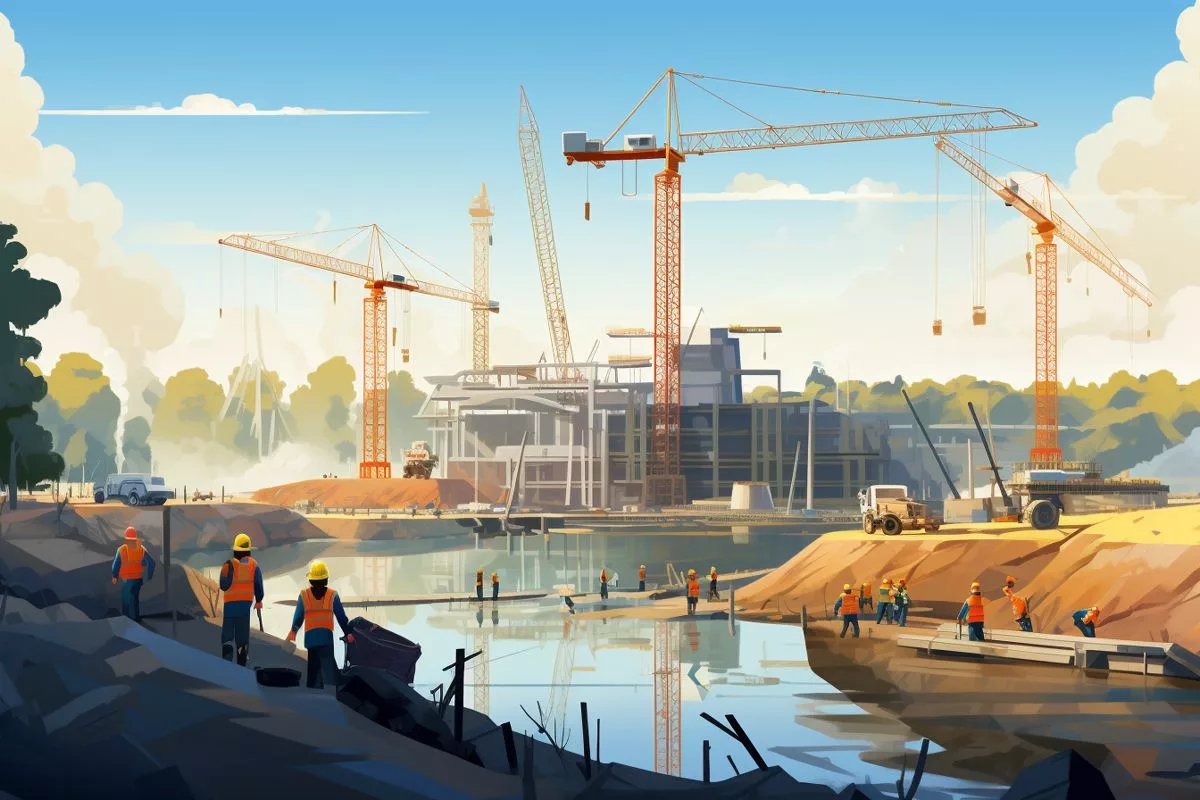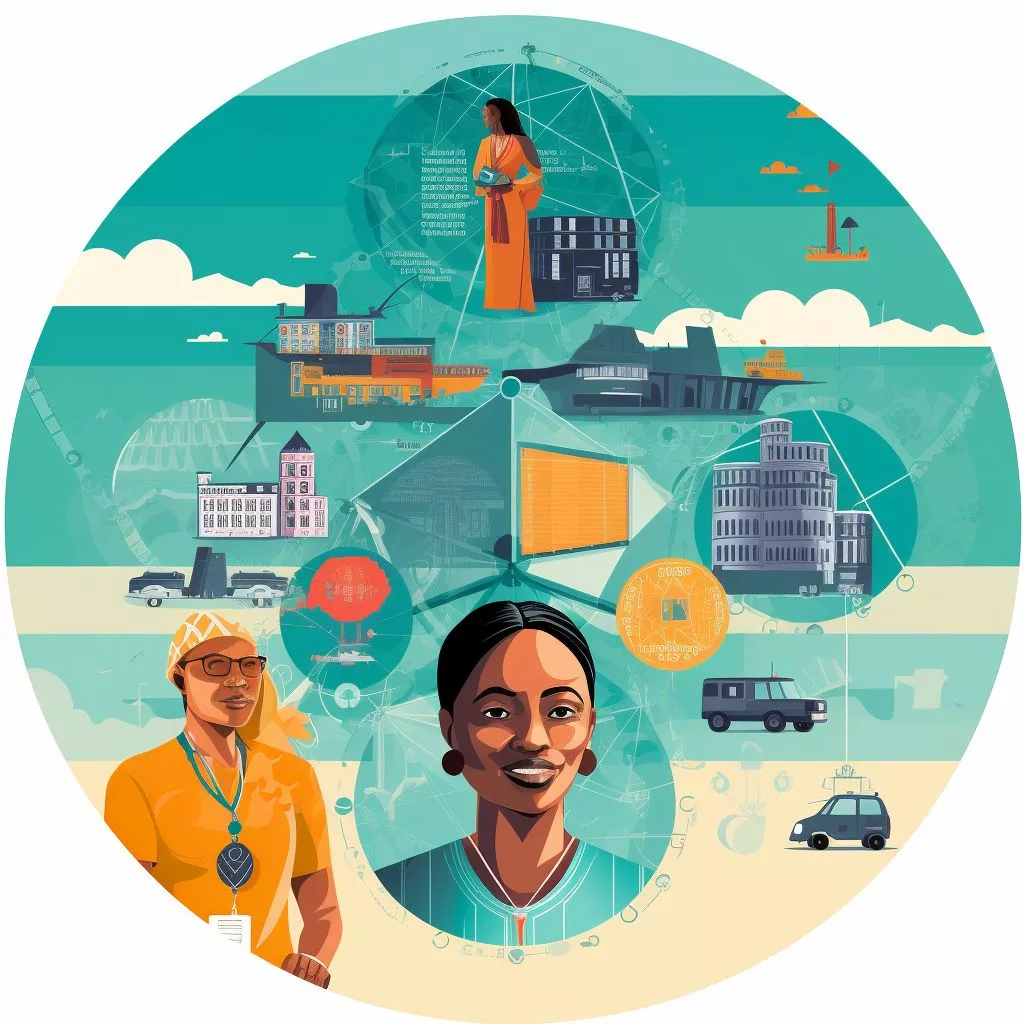South Africa’s National Committee on Large Dams will host the SANCOLD Annual Conference on November 15, 2023. The conference will address a range of topics, including new dam construction, dam revitalization, public safety, and dam dismantling. It will provide a platform for knowledge exchange and dialogue to shape the future policy decisions of South Africa’s water sector. The conference aims to bring together experts and technocrats from across the country and welcomes media participation to reach a broader audience.
What is the SANCOLD Annual Conference about?
The SANCOLD Annual Conference, titled “Dams – An essential resource in the contemporary era,” will take place on November 15, 2023, and will be hosted by the South African National Committee on Large Dams. The conference aims to address a variety of subjects, including new dam construction methodologies, dam revitalization, public safety, and dam dismantling, and will serve as a platform for knowledge exchange and dialogue regarding the future policy decisions of the water sector in South Africa.
The Upcoming Watershed Event
On the 15th of November, 2023, the prestigious Balalaika Hotel in Sandton will be the pivot around which an influential event revolves, an event that bears the potential to forge the future trajectory of South Africa’s crucial water sector. The South African National Committee on Large Dams (SANCOLD) will take the helm, hosting a three-day Annual Conference that will be graced by the esteemed Minister of Water and Sanitation, Mr. Senzo Mchunu, who will deliver the headline speech.
Setting the Stage for Dialogue
The conference carries the banner “Dams – An essential resource in the contemporary era”, signifying the acknowledgment of the critical role large dams play in our modern world. An assortment of subjects is lined up for deliberation, encompassing cutting-edge technologies, construction methodologies for new dams, dam revitalization, emergency response, public safety, and dam dismantling. Supplementary subjects include dams meant for water storage or flood mitigation, dam safety, and risk management.
The conference anticipates becoming a stage for knowledge exchange and dialogue, offering a chance for specialists and technocrats from diverse institutions throughout the nation to converge. This collaboration should shape the future policy decisions of the water sector in South Africa. The magnitude of this event is echoed in the attendee list, which includes notable personalities and foremost experts in the field. The media is encouraged to participate, highlighting the societal importance and relevance of the themes and dialogues to be conducted.
The Importance and Challenges of Dams
The conference stands as a declaration of the significance of dams in South Africa, not merely as crucial water reservoirs, but also for their contribution to flood containment and public safety. As the nation wrestles with predicaments like water shortage and climate change, the role of dams becomes increasingly paramount.
The discourse on advanced technologies and methodologies for designing and constructing new dams is indeed opportune. In an era increasingly dominated by technology, the water sector must adapt to survive. The investigation of novel technologies and techniques is crucial to guarantee the long-term viability and efficiency of South Africa’s dam infrastructure.
Addressing Infrastructure and Safety Concerns
Simultaneously, the issue of dam rehabilitation is a vital one, considering the nation’s ageing infrastructure. Building new dams is not sufficient; existing dams must be maintained and enhanced to ensure their ongoing operationality and safety.
The themes of emergency preparedness and public safety are also pivotal to the conference. The country has learned from past experiences that dams possess inherent dangers. Hence, it is vital to establish comprehensive emergency plans and ensure public safety is a primary concern in all dam initiatives.
Planning for the Future
One thought-provoking aspect of the conference is the conversation on dam decommissioning. While it may appear contradictory in a country dealing with water concerns, some dams do reach their use-by date or may pose more downsides than upsides. In such instances, decommissioning becomes a necessary course of action to evaluate.
The conference’s extensive array of themes mirrors the intricate and multi-dimensional nature of dam management. It’s not merely about creating water reservoirs; it’s about resource management, risk mitigation, public safety assurance, and future planning. This holistic approach is vital in the current era, given the diverse challenges confronting the water sector.
The Future of South Africa’s Water Sector
In summary, the SANCOLD Annual Conference seeks to be an influential event that will substantially determine the discourse and policy direction of South Africa’s water sector. With the honorable Minister Senzo Mchunu’s headline speech and the participation of experts and technocrats from across the country, the conference aims to facilitate significant dialogues that will drive the nation’s water sector forward. In the spirit of collaboration, media personnel are invited to participate, enabling these essential discussions to reach a broader audience.
1. What is the SANCOLD Annual Conference about?
The SANCOLD Annual Conference, titled “Dams – An essential resource in the contemporary era,” will take place on November 15, 2023, and will be hosted by the South African National Committee on Large Dams. The conference aims to address a variety of subjects, including new dam construction methodologies, dam revitalization, public safety, and dam dismantling, and will serve as a platform for knowledge exchange and dialogue regarding the future policy decisions of the water sector in South Africa.
2. When and where will the SANCOLD Annual Conference take place?
The SANCOLD Annual Conference will take place on November 15, 2023, and will be hosted at the Balalaika Hotel in Sandton, South Africa.
3. Who will be delivering the keynote speech at the SANCOLD Annual Conference?
The keynote speech at the SANCOLD Annual Conference will be delivered by the esteemed Minister of Water and Sanitation, Mr. Senzo Mchunu.
4. What are some of the topics that will be discussed at the SANCOLD Annual Conference?
The SANCOLD Annual Conference will cover a range of topics related to dams and the water sector, including new dam construction, dam revitalization, public safety, emergency response, dam dismantling, water storage, flood mitigation, dam safety, and risk management.
5. Why is the SANCOLD Annual Conference important for South Africa’s water sector?
The SANCOLD Annual Conference provides a platform for knowledge exchange and dialogue that will shape the future policy decisions of South Africa’s water sector. The conference aims to bring together experts and technocrats from across the country to discuss critical issues related to dams and the water sector.
6. What is the significance of dam decommissioning in the context of the SANCOLD Annual Conference?
While it may seem counterintuitive in a country grappling with water scarcity, the conversation on dam decommissioning is an important one. Some dams may have reached their use-by date or pose more risks than benefits. In such instances, decommissioning becomes a necessary course of action to evaluate as part of the holistic approach to dam management.








